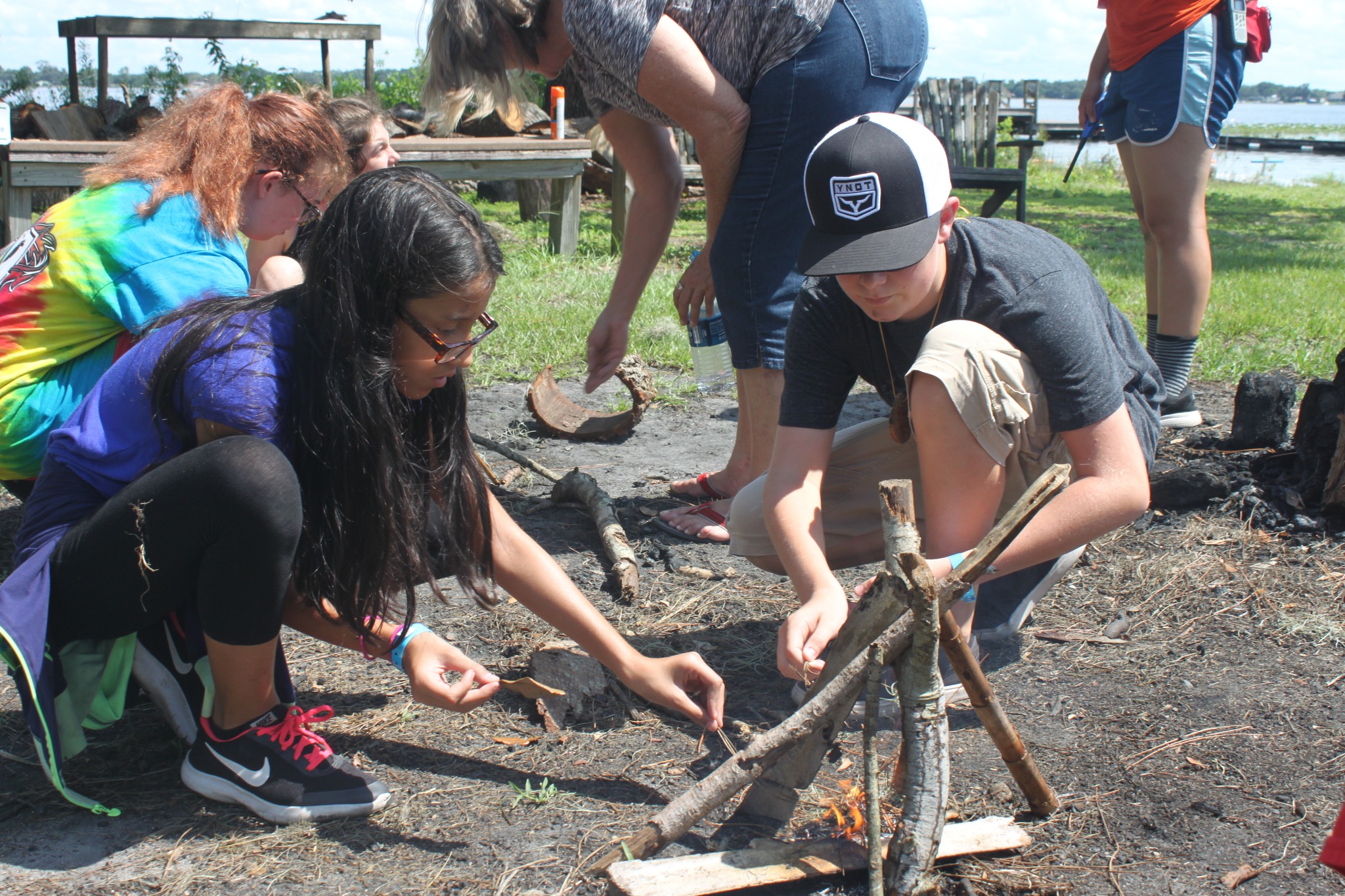After three years of on-and-off online learning for kids, this summer many are getting reacquainted with the great outdoors. Florida 4-H Camps have been around for almost 100 years, teaching kids how to learn by doing and helping them gain a sense of independence. There are three main Florida 4-H camps in the state: Camp Timpoochee in Niceville, Camp Cherry Lake in Madison and Camp Cloverleaf in Lake Placid.


Florida 4-H Camps
There are three main Florida 4-H Camps: Camp Timpoochee in Niceville, Camp Cherry Lake in Madison and Camp Cloverleaf in Lake Placid. Following a rigorous review process, both 4-H Camp Cloverleaf and Camp Timpoochee have received American Camp Association accreditation. Camp Cherry Lake will go through this review once renovations at the camp are complete.
“In a time when outside of camp can be a little extra confusing or crazy, it’s a nice place to just come and have peace and connect with nature, and be with friends while you’re doing it,” says Erin Mugge, Camping and Environmental Education Coordinator.
“American Camp Association accreditation has been a goal of Florida 4-H camps for many years,” said Erin Mugge, state 4-H camping and environmental education coordinator. “Accreditation verifies that a camp has complied with up to 290 standards for health, safety and program quality. This accreditation also assures parents that the camp has had a regular, independent peer review that goes beyond regulations in most states.”
Although there are some general activities that occur at both camps, like swimming, bonfires and kayaking, each camp has their own special activities. Also, each week, the camps have different themes with a variety of activities to match.
In 2022, the Florida 4-H Camping Program transitioned to an open enrollment model. This meant youth who were not already 4-H members could attend summer camp.


Kids as young as six can take part, at least during the day camps. The goal of the camps is to foster a sense of belonging, create positive and healthy relationships. It also helps youth develop life skills through experiential learning.
“Even though it’s camp and we’re having fun and singing songs and things like that, there is still a good sprinkle of education aspects to all of our programs,” Muggee adds.
What is 4-H?


The roots of 4-H in the United States began at the turn of the 20th century. Progressive educators, emphasizing the needs of young learners, introduced nature study as a basis for a better agricultural education. The goal of the program was to extend agricultural education through “learning by doing.” The 4-H program developed with the state land-grant universities, like the University of Florida. By 1912, virtually all the land-grant institutions in the southern states had signed cooperative agreements with the USDA. From there they organized 4-H Extension departments.
There are 4-H Extensions departments, also called extension offices, throughout the country. This is how many kids get involved with 4-H. Each Extension office is run by professionals that have various activities throughout the year. All activities, just like at the 4-H camps, focus on learning by doing and actively engaging with the environment.
“The mission of 4-H is to use a learn by doing approach,” Muggee summarizes. “And have caring adults help you gain knowledge, life skill to be productive, responsible citizens.”
For more information about the Florida 4-H Camping Program, click here.
More stories on Modern Globe
- Report Finds Over 10% of Young People in Pinellas Not Employed — But There’s a Solution
- March Job Fair to Connect Employers and Veterans in the Tampa Bay Area
- Move Over, Gyms and Pools: Renters Want Pet Areas and Happy Hour
- Climate First Bank Reduces Solar Loan Rates for Increased Access to Sustainable Living
- CSHP Offers New Veteran Training Opportunities




























